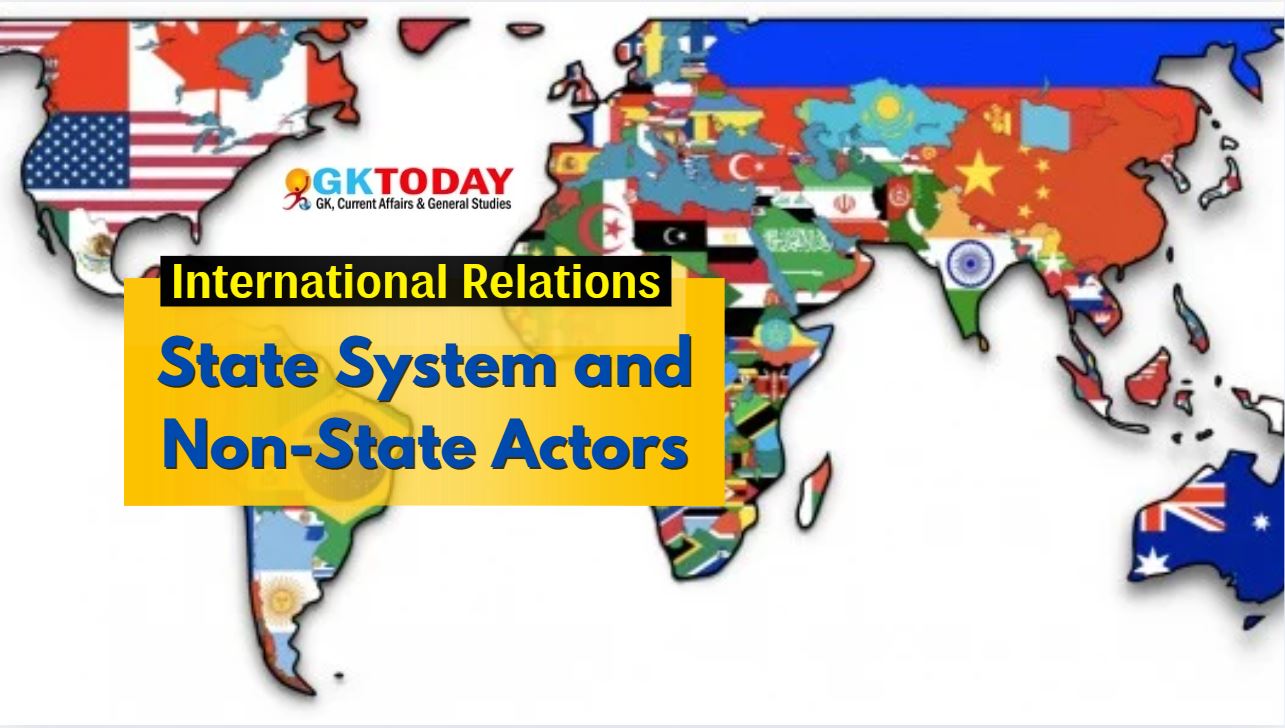UGC-NTA NET Political Science – State System in International Relations
The study of the state system in international relations is essential for understanding global politics. This encompasses definitions, characteristics, types of states, sovereignty, theories, functions, recognition, and the impact of globalization. Each component plays important role in shaping the dynamics between states and their interactions on the world stage.
Definition of State
A state is a defined political entity. It possesses a defined territory, a permanent population, a government, and the capacity to engage in relations with other states. Key characteristics include:
- Sovereignty: The authority of a state to govern itself.
- Recognition: Acknowledgment by other states of its existence and legitimacy.
- Legitimacy: The general acceptance of a state’s right to govern.
Types of States
States can be classified into various types based on their characteristics:
- Nation-State: A state where political boundaries align with cultural or ethnic boundaries, such as Japan.
- Multi-National State: A state containing multiple nations or ethnic groups, e.g., India and Canada.
- City-State: A sovereign state that consists of a city and its dependent territories, examples include Singapore and Vatican City.
- Failed State: A state with weak institutions and an inability to provide basic services, such as Somalia.
Sovereignty
Sovereignty is fundamental to the concept of a state. It can be understood in three dimensions:
- Internal Sovereignty: The authority of a state to govern itself without external interference.
- External Sovereignty: Recognition by other states and the capacity to enter international relations.
- Popular Sovereignty: The principle that the state’s authority is derived from the consent of its people.
Theories of the State
Different theories provide varied perspectives on the role of the state in international relations:
- Realism: Views the state as the primary actor, focusing on power and security.
- Liberalism: Emphasises cooperation among states and the significance of international institutions.
- Constructivism: Argues that state behaviour is influenced by social constructs, identities, and norms.
State Functions
States perform several critical functions:
- Security: Protecting the state from external threats.
- Order: Maintaining internal stability and law enforcement.
- Welfare: Providing social services and economic support to citizens.
- Diplomacy: Engaging in international relations and negotiations.
Recognition of States
Recognition is a vital aspect of statehood, divided into categories:
- De Jure Recognition: Formal acknowledgment of a state’s sovereignty.
- De Facto Recognition: Acknowledgment of a state’s existence without formal recognition.
- Non-Recognition: The refusal to recognise entities claiming statehood, such as Taiwan and Palestine.
International Law and the State
States are the primary subjects of international law. Key principles include:
- Prohibition of the use of force.
- Respect for sovereignty.
- The right to self-determination.
State vs. Nation
Globalization and the State
Globalization has impacted state sovereignty and authority. Key points include:
- Emergence of transnational issues, such as climate change and terrorism.
- Challenges to traditional state functions.
The Role of International Organizations
International organisations facilitate collaboration among states. Examples include:
- United Nations (UN): Promotes peace and security.
- North Atlantic Treaty Organization (NATO): A military alliance for collective security.
- European Union (EU): Promotes economic and political integration among member states.
These organisations influence state behaviour and encourage cooperation on global issues.
Challenges to the State System
The state system faces several challenges:
- Non-State Actors: Influence of multinational corporations, NGOs, and terrorist groups.
- Regional Integration: Rise of organisations like the EU and ASEAN that may supersede state authority.
- Global Governance: The need for collective action on issues transcending state boundaries.
The Future of the State System
Debates continue regarding the relevance of the state system in a rapidly changing global landscape. Key considerations include:
- Potential for new forms of governance.
- Evolution of state sovereignty in the 21st century.
- Adaptability of states to transnational challenges.
The state system remains a fundamental aspect of international relations. However, it must evolve to address contemporary global challenges effectively. The interplay between states, non-state actors, and international organisations will shape the future of global governance and political dynamics. About these elements is vital for comprehending the complexities of international relations .



